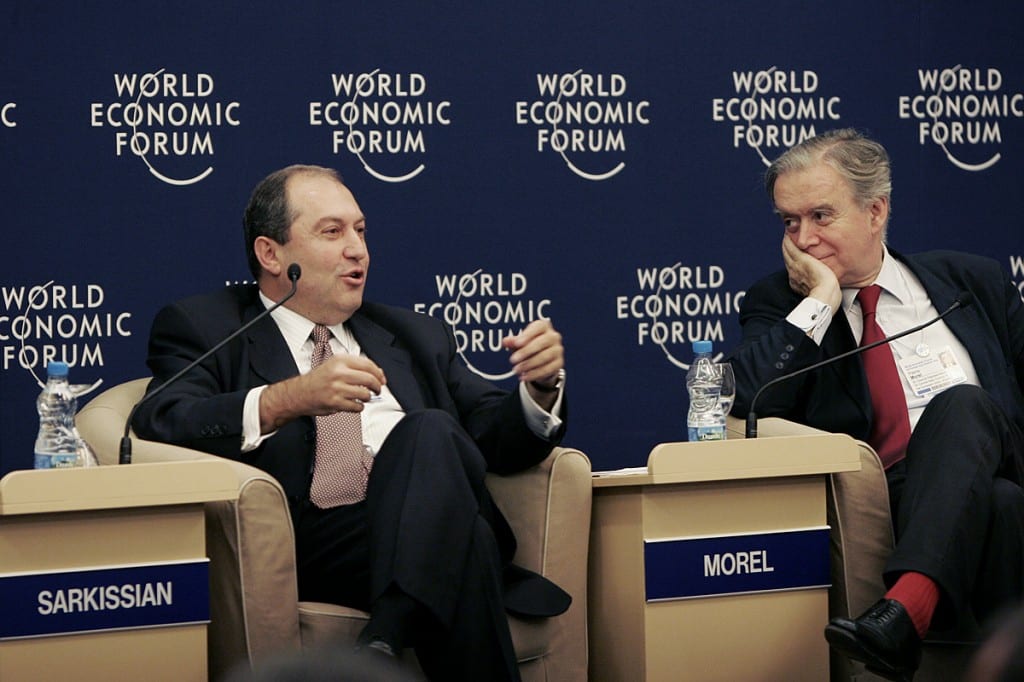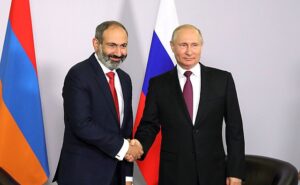Ahead of the upcoming elections, Armenia’s President Serzh Sargsyan has proposed the country’s Ambassador to London and former Prime Minister, Armen Sarkissian, as his successor. Sarkissian said that the proposal was an honour for him, but that he needed ‘’some time’’ to decide whether he will accept the nomination. He intends to meet several major Armenian political and civic groups to discuss the option. The main opposition bloc in Armenia , the Yelk party (Way Out), said it will vote against the former PM if he plans to run as a presidential candidate of the ruling Republican Party of Armenia (HHK) in the elections scheduled on 10 March.
In compliance with the constitutional amendments approved in the 2015 referendum, the president will be elected by parliament instead of a direct popular vote. The new term will be covering a single seven-year period. The incumbent will be less powerful, as a significant number of competences will be delegated to the Prime Minister and the National Assembly, including the right to veto draft bills and parliament decisions. Critics argue that the President’s nomination of Armen Sarkissian enables him to continue wielding power after ending his second and final term in March. Opposition parties also fear Serzh Sargysan plans to become PM to continue ruling the country. The President denies the allegations.
Some observers criticise the new way of electing the head of state. Dramatist Karine Khodikyan says the election does not reflect the will of the people. ‘’This is not a popular election but a party’s election. First of all, Armen Sarkissian must meet the HHK’s (Republican party of Armenia) demands.’’
Only one candidate?
The Yelk party does not rule out a meeting with Armenia’s envoy, but will nevertheless vote against his candidacy. ‘’After all, Armen Sarkissian is a Republican Party candidate and that is a quite telling fact in itself,’’ emphasises Ararat Mirzoyan, a member of the opposition bloc. Yelk intends to put forward its own candidate, Artak Zeynalian. However, this is quite a challenge, as the bloc holds only 9 out of 105 seats in parliament, whereas 27 lawmakers have to back a presidential candidate for him/her to be in the running. The opposition bloc had sought the help of the second largest party, the Tsarukian Bloc, which holds 31 parliamentary seats, to provide the remaining signatures to get Zeynalian’s name on the ballot, but the latter refused to do so. Gevorg Gorgisian, another member of Yelk, has challenged the ruling HHK to help register Zeynalian as a candidate. ‘’Otherwise it will be an election without an alternative, without a dialogue and without a debate, which will run counter to democracy,’’ he argues.
Even if Yelk succeeds in nominating its candidate, his chances of success are practically non-existent. In order to win the first and second rounds, a candidate has to be backed by a three-fourth majority. A simple majority is needed in the third round to win the presidency. The ruling HHK, which won the 2017 parliamentary elections with 49 per cent of the votes, and its junior coalition partner Dashnaktsutyun hold 65 seats between them and need 14 votes of the second biggest parliamentary group, the Tsarukian Bloc, to get the required majority. Its leader Gagik Tsarukian has not ruled out the possibility of supporting the coalition’s candidate Armen Sarkissian so far.



